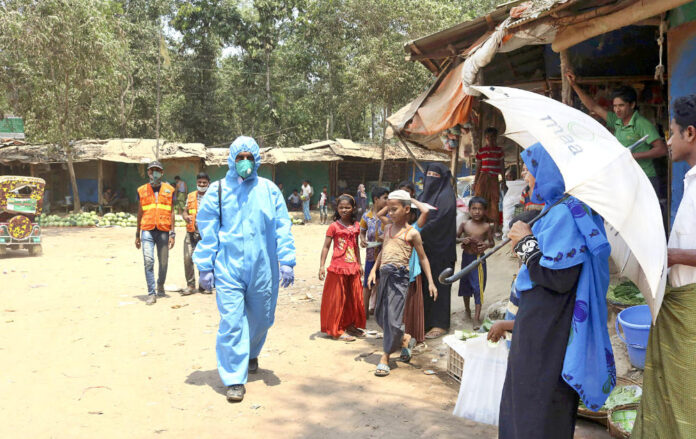DHAKA: Bangladeshi authorities said on Saturday they are planning to make Rohingya family reunions more frequent, as the first group of refugees resettled to a remote island camp in the Bay of Bengal last year visited their relatives on the mainland.
Bangladesh hosts more than 1.1 million Rohingya, who fled neighboring Myanmar during a military crackdown in 2017. Most of them live in Cox’s Bazar, a coastal region in the country’s east, which with the arrival of Rohingya became the world’s largest refugee settlement.
To take pressure off Cox’s Bazar, the Bangladeshi government has since December 2020 sent 20,000 refugees out of a planned 100,000 to Bhasan Char, a flood-prone island some 68 km from the mainland.
The UN refugee agency had criticized the relocation on the grounds of safety and Bhasan Char’s livability until October, when it signed an agreement with the Bangladeshi government to start operations on the island. Rights groups such as Human Rights Watch continue to oppose the project, questioning whether the resettlement has been voluntary.
A year since the beginning of relocation, 68 Rohingya living in the island camp were allowed to arrive in Cox’s Bazar on Tuesday night to stay for eight days.
“We have plan to regularize such visits for family reunions of the Rohingyas. After the return of the first batch, we will review the outcome and organize the tour for a second batch if there are no anomalies,” Zohirul Islam, in charge of the Bhasan Char camp, told Arab News.
“In the first batch 68 Rohingyas were taken for the reunion with the families and friends at Cox’s Bazar. They will stay over with the family for eight days.”
He added it took a year to grant permission, as authorities needed time to prepare the trip and logistics.
Fatema Begum, 23, who was reunited with her ailing mother in Cox’s Bazar, said the visit gave her “great peace of mind.”
“I was worried about my mother’s health condition,” said Begum, adding: “I was not sure whether I could see her again in my life.”
She told Arab News she would rather stay on the mainland, as most of her family members are in Cox’s Bazar, but in Bhasan Char her fisherman husband has more opportunities to earn a livelihood.
Unlike her, Zobaer Ahmed, 24, said he felt safer on the island as gang violence incidents have been on the rise in Cox’s Bazar in recent months.
“But it’s a great joy to be reunited with my mother, sisters and eight other family members after so many months,” he said. “I am happy to see their faces. No words can express my joy.”
For Ahmed, Bhasan Char is a good place for living, he said, as each family has its own house and there is more space compared with the congested makeshift settlements of Cox’s Bazar. He expressed hope, however, that there would be more freedom of movement for the island’s inhabitants.
“I have shared the information with my friends and family members over the facilities we are currently enjoying at Bhasan Char island,” he told Arab News. “Some of them have expressed interest to be relocated to the island.”
Nur Khan, a prominent human rights activist in Bangladesh, said the reunion was a “praiseworthy initiative,” but certain issues should be addressed as recent reports suggest that dozens of refugees have fled the island, where they are not allowed to move outside the camp.
“The authorities also need to think why some Rohingyas tried to flee from the island in recent months. The authorities should work to find out and remove the causes,” Khan told Arab News.
“We should keep in mind that the Rohingyas are free men also. They took shelter here to save lives. So, we need to ensure a life with dignity for them.”

